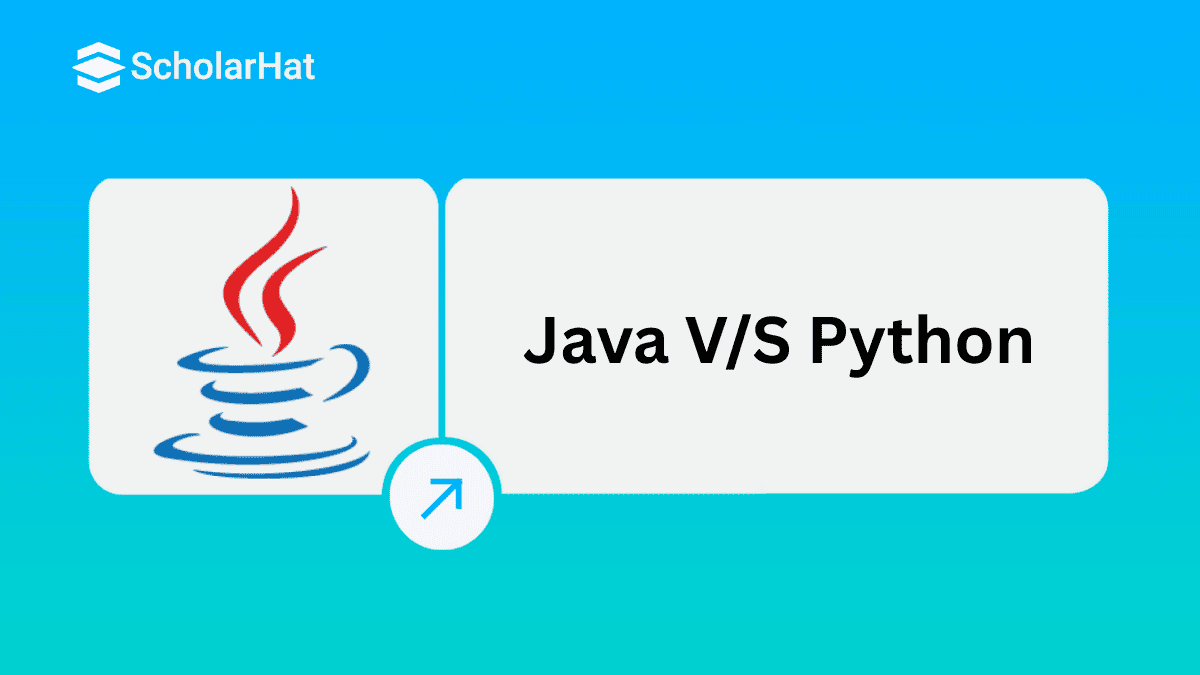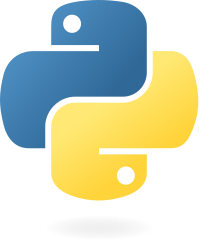06
FebJava vs Python: Which Language is Better for the Future?
Python vs Java is one of the most searched comparisons in the programming world.
- Python, a high-level, dynamically typed, and interpreted language, is celebrated for its clean syntax, ease of learning, and rapid development capabilities, making it a top choice for beginners and widely used in data science, machine learning, automation, and web development;
- Whereas Java, a statically typed, compiled, and object-oriented language, is known for its platform independence, strong performance, and long-term stability, making it ideal for enterprise software, Android apps, and large-scale systems.
Both languages offer immense career opportunities , and learners can benefit greatly by enrolling in a Free Java Certification Course to build a strong foundation in Java and stay competitive in the tech industry.

What is Java?
Java is a high-level, object-oriented programming language developed by Sun Microsystems in 1995 (now owned by Oracle). Known for its “write once, run anywhere” capability, Java allows developers to build cross-platform applications that can run on any device with a Java Virtual Machine (JVM). Java's object-oriented nature and efficiency make it suitable for web development, Big Data, and IoT applications in addition to mobile apps.
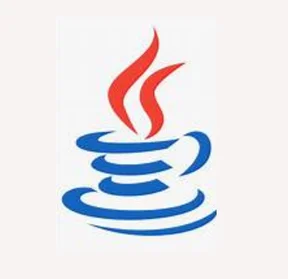
Advantages of Java
- Platform Independence- Java runs on the Java Virtual Machine (JVM), making it cross-platform. Write once, run anywhere.
- Faster Execution Speed- Being a compiled language, Java typically performs faster than interpreted languages like Python.
- Strong Memory Management- Java has built-in garbage collection and multithreading capabilities for efficient memory use.
- Robust and Secure- With features like exception handling, strong type-checking, and access control, Java is ideal for enterprise-grade applications.
- Android App Development- Java is the official language for Android development, used in millions of mobile apps.
- Wide Ecosystem and Libraries- Rich APIs for networking, I/O, utilities, databases, and more.
- High Job Demand- Java developers are in high demand in banking, enterprise software, cloud, and Android sectors.
Real-Life Examples of Java in Action
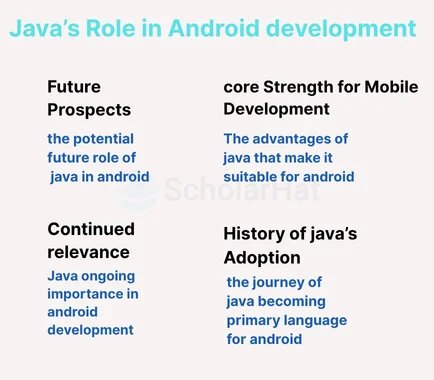
Java is the foundation of Android app development and has been the official language of the platform since day one. Many of the world’s most-used mobile apps—such as WhatsApp, Spotify, and Signal—are built using Java, trusted for its performance, scalability, and security.
The Android SDK (Software Development Kit) is primarily Java-based, giving developers access to powerful tools, libraries, and APIs to create stable, high-performing mobile applications. Thanks to the Java Virtual Machine (JVM), apps written in Java run seamlessly across different Android devices—offering true platform independence.
Java’s Role in Android Development (Summary)
- History of Adoption: Java has been the core language for Android since the beginning due to its portability and strong OOP support.
- Core Strengths: Java offers platform independence, multithreading, and security—making it ideal for mobile app development.
- Evolution with Kotlin: Kotlin was introduced as a modern alternative, but it works alongside Java, not against it.
- Continued Relevance: Many apps, tools, and libraries are still Java-based. Java is widely taught and used in enterprise apps.
- Future Prospects: Java will continue to be important for maintaining existing code and integrating with newer technologies like cloud and IoT.
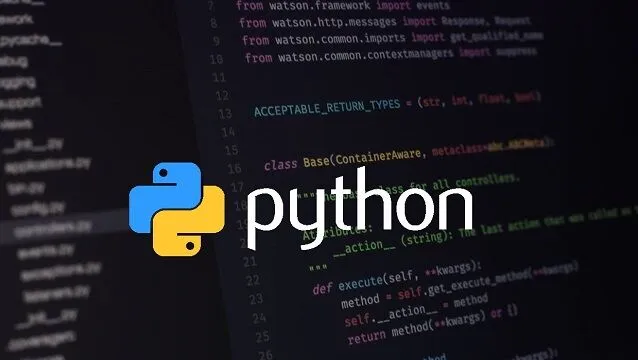
What is Python?
Python, is a high-level, object-oriented programming language first released in 1991 by Guido van Rossum. Designed with a focus on simplicity and readability, Python uses a clean and minimal syntax that makes it especially beginner-friendly. Over the years, Python has proven to be one of the most versatile and adaptable languages. Its wide range of libraries and frameworks has made it a go-to choice for machine learning, data science, image processing, web development, automation, and even multimedia applications.
Advantages of Java
- Simplicity and Readability- Python's clean syntax is easy to learn, making it perfect for beginners and rapid development.
- Versatile Use-Cases- From data science and machine learning to web development, automation, and IoT, Python covers it all.
- Massive Library Support- Libraries like NumPy, Pandas, TensorFlow, Flask, and Django speed up development.
- Faster Development Time- Fewer lines of code and dynamic typing mean you can build and test software quickly.
- Strong Community and Resources- Extensive documentation, active forums, and free learning materials for all levels.
- Great for Prototyping- Ideal for building MVPs (Minimum Viable Products) or testing ideas quickly.
- Demand in AI/ML Fields- Python dominates in AI, data science, and research-based roles.
Real-Life Examples of Java in Action
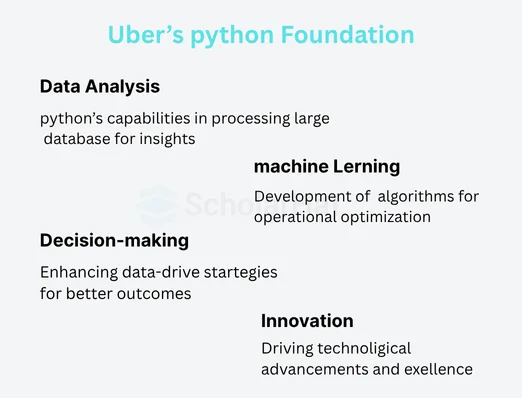
Python at Uber: Powering Data and Machine Learning
Uber relies heavily on Python to drive its data analytics, real-time forecasting, and dynamic surge pricing systems. By processing massive volumes of trip, location, and user data, Python enables Uber to accurately predict ride demand and adjust pricing on the fly to match supply and demand.
The company builds its machine learning models using powerful Python libraries such as NumPy, Pandas, and Scikit-Learn, enabling precise demand forecasting and efficient resource allocation. Python’s versatility and scalability support Uber’s real-time decision-making infrastructure—ensuring faster rides, optimized routes, and smarter pricing for millions of users worldwide.
- Surge Pricing: Python helps Uber change prices during busy times by checking how many people need rides and how many drivers are available.
- Ride Predictions: Uber uses Python to guess how many people will need rides in a certain area by looking at the time, weather, and local events.
- Machine Learning: Python is used to build smart systems that can predict user behavior, ride times, and driver availability.
- Better Routes: Python helps find the quickest and best routes for drivers by looking at traffic data.
Performance Comparison
| Feature | Java | Python |
| Execution Speed | Compiled faster | Interpreted slower |
| Startup time | Slightly longer (due to JVM) | Shorter |
| Memory usage | More memory efficient | High memory usage |
| Concurrency | Strong multithreading support | GIL (Global interpreter lock) limits threading |
| Best cases | Use android, enterprise, cloud based system | Data science, AI, automation scripting |
| Compilation | Compiled to bytecode | Interpreted line by line |
Which is more suitable for the future, Python or Java?
Java and Python each have promising futures, providing various demands. Java's robustness, reliability, and performance make it ideal for enterprise-level applications and systems. Python, on the other hand, benefits from its simplicity, versatility, and huge libraries, making it ideal for rapid development, data research, and artificial intelligence. The choice between Java and Python is based on the project's specific requirements as well as the developer's preferences.
- Java converts source code to bytecode, which is subsequently interpreted by the Java Virtual Machine (JVM) during runtime. The JVM can then JIT compile the bytecode to machine code for improved performance.
- The Python interpreter interprets Python source code directly. This makes Python programs easier to design and debug, but they may not be as quick or secure as Java applications.
Difference between Java and Python
| Feature | Java | Python |
| Code | Java has multiple lines of code. | Python typically uses fewer lines of code. |
| Framework | Java includes a vast number of frameworks. Popular ones include Spring, Hibernate, and so forth. | Python has fewer frameworks than JAVA. Popular ones include Django and Flask. |
| Syntax | The syntax is complex, and missing semicolons or curly braces results in problems. | The syntax is simple to remember and very similar to human English. |
| Important Features | Self-memory management. Robust, platform-independent. | Fewer lines of code, faster deployment, and dynamic typing. |
| Speed | Java has a faster execution time than Python. | Python is slower because it has an interpreter and decides the data type at runtime. |
| Multiple Inheritance | Java partially enables Multiple Inheritance via interfaces. | Python enables multiple inheritance. |
Read More: |
Summary
Java and Python provide various programming advantages. Java's performance and scalability make it ideal for enterprise-level applications, whereas Python's simplicity lends itself to rapid development and artificial intelligence. Understanding their differences aids in selecting the appropriate language. Both have bright futures, catering to a variety of needs in software development and developing technologies.
To enhance your Java career with Full Stack Java Course which provides a structured learning path and certification to advance your career.
FAQs
Python, being an interpreted language, is generally slower than Java. However, Python has various optimization tools, and for many applications, the difference in speed may not be significant.
Take our Java skill challenge to evaluate yourself!

In less than 5 minutes, with our skill challenge, you can identify your knowledge gaps and strengths in a given skill.

